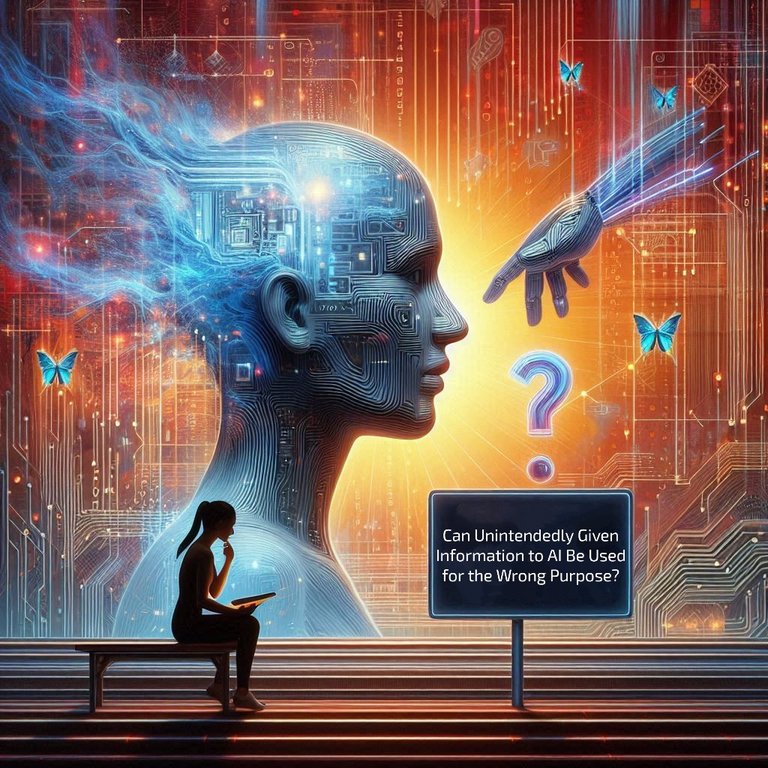Hey Everyone!!
In today’s digital age, the rise of artificial intelligence (AI) has opened up endless possibilities—from creating art to generating voices and even holding real-time conversations. One of the latest trends catching fire across social media is the transformation of original images into Ghibli-style art. While this trend seems fun and creative on the surface, it hides a deeper concern—users unknowingly feeding private data to AI systems, without fully understanding the consequences.

Source: Canvas Dream Lab
With just a click, people are uploading personal photos, selfies, family moments, and sometimes even sensitive images to websites or apps that promise stunning transformations or entertaining filters. But what goes unnoticed is what happens after the photo is uploaded. Where does it go? Who has access to it? And can it ever be deleted from the AI’s memory?
Many AI-powered tools and applications collect user data as part of their functionality. These systems are trained using large sets of data to improve their accuracy and performance. While some platforms are transparent about how they use the data, others keep it vague or hidden in lengthy terms and conditions that most users never read. This opens the door for unintentional misuse. Your data, once uploaded, can be stored, analyzed, and even shared with third parties.
Now, imagine a scenario where this data is used for identity theft, deepfakes, or even targeted scams. A person who merely wanted a cartoon version of their photo might later find their image being used in an online advertisement, or worse, involved in illegal activity without any knowledge or consent. The danger here lies not just in the technology itself, but in our casual approach to it.
We are willingly handing over fragments of our lives to an ever-learning system that doesn’t forget. AI collects and processes user data—location, face features, habits, preferences, voices—and stores it in servers, often beyond the user’s control or visibility. While some of this is used to “personalize” experiences or “improve” services, the risk lies in how secure this data really is, and who ends up accessing it.
The question remains: can unintentionally shared information be misused? The answer is yes. When your data is in someone else’s hands, especially on the internet, there's always a risk it can be exploited. That’s why it's important to pause and think before uploading personal content to AI tools—no matter how fun the trend might seem.
In a world run by trends and likes, we must remember that our digital footprint is permanent. It’s not about being paranoid; it’s about being smart. Enjoy the tech, but stay aware—because sometimes, even unknowingly, we may be giving away more than we realize.

TᕼᗩᑎK YOᑌ😊
ꜰᴏʀ ᴛᴀᴋɪɴɢ ᴛʜᴇ ᴛɪᴍᴇ ᴛᴏ ʀᴇᴀᴅ ᴍʏ ʙʟᴏɢꜱ!
ʜᴀᴠᴇ ᴀ ᴡᴏɴᴅᴇʀꜰᴜʟ ᴅᴀʏ🌞

This post has been manually curated by @bhattg from Indiaunited community. Join us on our Discord Server.
Do you know that you can earn a passive income by delegating to @indiaunited. We share more than 100 % of the curation rewards with the delegators in the form of IUC tokens. HP delegators and IUC token holders also get upto 20% additional vote weight.
Here are some handy links for delegations: 100HP, 250HP, 500HP, 1000HP.
100% of the rewards from this comment goes to the curator for their manual curation efforts. Please encourage the curator @bhattg by upvoting this comment and support the community by voting the posts made by @indiaunited..
This post received an extra 12.87% vote for delegating HP / holding IUC tokens.
It is horrifying to think about the exploitation we might be inviting just by being mindless abput the use of digital tools.
I am someone who doesn't use apps for photo filters but reading this post I realized there are still services that hold my data. For instance, google photos automatically stores my photos and its AI is also empowered. The photos there don't lack the exploitation potential. Perhaps we need to be a lot careful about the photos that we even take from our mobile camera, let alone using apps to modify them.
!PAKX
View or trade
PAKXtokens.Use !PAKX command if you hold enough balance to call for a @pakx vote on worthy posts! More details available on PAKX Blog.